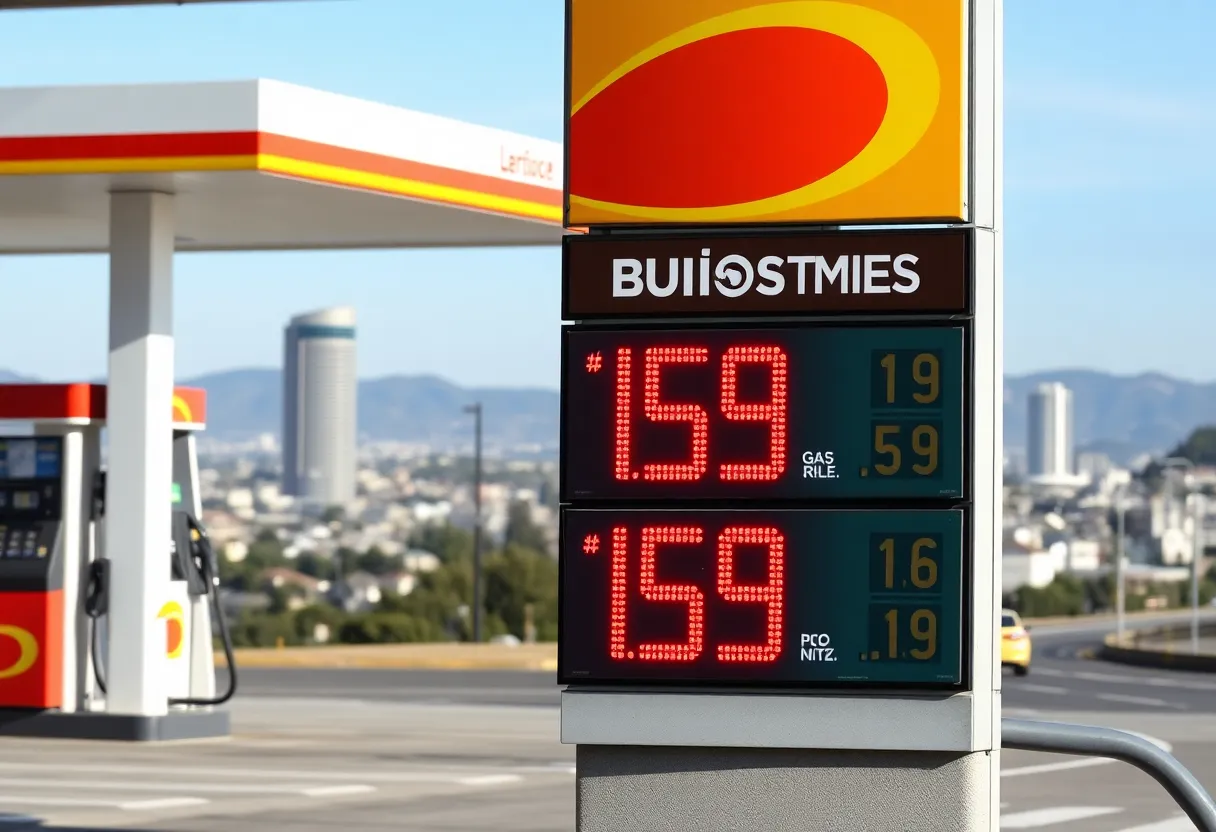News Summary
A report from USC forecasts California gas prices may rise to over $8 per gallon by 2026, representing a 75% increase from the current $4.82. Causes include refinery closures and a reliance on imports for crude oil. The situation poses economic challenges as experts warn of supply shortages and increased costs that could impact consumers significantly.
California gas prices are forecasted to exceed $8 per gallon by the end of 2026, according to a report by Michael A. Mische from USC’s Marshall School of Business. This projected increase represents a potential 75% rise from the current average price of $4.82 per gallon as of April 23, 2025. The study indicates that regular gasoline prices could range between $7.35 and $8.43 per gallon, significantly impacting consumers across the state.
The anticipated rise in gas prices is largely attributed to expected refinery closures, including Phillips 66 in Los Angeles and Valero in Benicia. These closures are projected to reduce California’s refining capacity by 21% over the next three years, which could eliminate between 6.6 million and 13.1 million gallons of gasoline per day from the state’s fuel supply. California currently consumes over 13.1 million gallons of gasoline daily, creating what experts warn could lead to a substantial supply shortfall.
Currently, California is heavily reliant on imports for its crude oil needs, producing less than 24% of what it requires. This situation is compounded by a 20% reduction in refining production capacity, which is equivalent to more than half of Washington State’s total production capacity. Mische points out that this reduction in supply is unlikely to be balanced by a corresponding drop in fuel demand, as there are no signals that demand will decrease by the needed 20%.
Several factors contribute to the rising gas prices in California. These include increasing state excise and sales taxes, costs associated with the cap-and-trade program, pending changes to the Low Carbon Fuel Standard (LCFS), and the state’s dependence on costly maritime transport of fuel due to a lack of incoming pipelines. Changes to the LCFS could further increase prices by nearly 10%. Consumers may also face additional costs associated with transportation needs, as gasoline might need to be imported from distant regions such as the Gulf Coast or Asia.
Mische framed the study as a risk assessment rather than a dire prediction, urging preparation for future price trends without focusing solely on exact figures. Local gas station owners are already feeling the pressure, with reports of price increases. For example, one owner had to raise prices from under $4 to $4.49 per gallon, although this is still below the state average.
As concerns about rising gas prices mount, California Governor Gavin Newsom’s office has announced intentions to collaborate with refiners to ensure a reliable gasoline supply. However, critics of the report, including the Governor’s office, have expressed skepticism about Mische’s credibility, citing his past work on Saudi Arabia’s Vision 2030 project. Mische has contested these claims, maintaining that his focus has been on diversifying economies away from fossil fuels.
The projected gas price increase and potential refinery shutdowns are also expected to have broader economic implications, potentially eliminating approximately 1,300 direct jobs and around 3,000 additional indirect jobs in the state. The increasing cost of gasoline may prompt some consumers to explore alternative transportation methods, such as public transit, as they seek to manage their expenses.
Senate Minority Leader Brian W. Jones has highlighted the potential for an energy and economic crisis stemming from the refinery closures, stressing the importance of prompt action to mitigate these challenges. Without regulatory changes or effective intervention, gas prices in California may continue to escalate, resulting in further economic burdens on residents. The situation presents critical challenges for policymakers and consumers alike as they navigate an uncertain energy landscape in the coming years.
Deeper Dive: News & Info About This Topic
- ABC7 News
- Wikipedia: Gasoline Prices
- SFGate
- Google Search: California gas prices future
- Fox Business
- Google Scholar: California gas price increases
- KTLA News
- Encyclopedia Britannica: Gasoline Taxes
- Forbes
- Google News: California refinery closures








